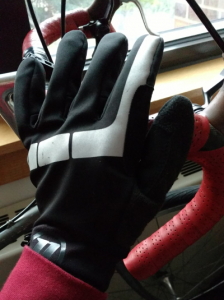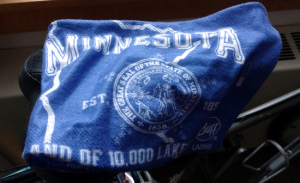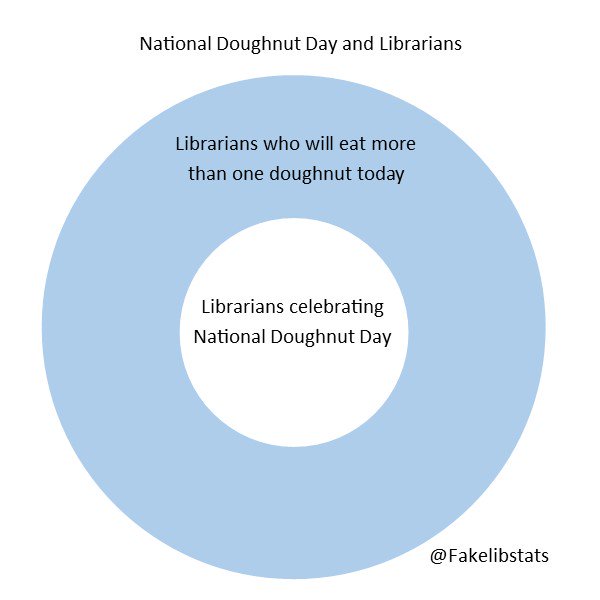This is not a post about copyright. It is, very indirectly, a post about how I talk about copyright. But the real point here is about how word choice (and to a lesser extent, choices to invoke some more general concepts) in public speaking can affect individuals in the audience. It is about how not using some words (even ones you may like using in other contexts) can affect how the overall message is received by the audience. Most importantly, it is about how omitting or taking care with some words and concepts can be a baseline act of respect for the individuals that make up an audience.
I do a lot of public speaking, and while I usually have an outline for the talk, most of the words that come out of my mouth are not scripted. Some large amount of what I say is not entirely under my conscious control. However, like most (I would like to say all, but this is sadly super not-true) public speakers, I avoid some words because they are generally considered socially unacceptable. This includes curse words (YMMV on whether cursing is socially acceptable, but few people would agree it falls within “polite” speech in most public contexts), racist and sexist slurs, and so on. This also doesn’t involve much conscious effort, because I am not a jerk .
However, over the years, I’ve started to make some conscious efforts in some other words I don’t say.
I’ll admit, the reason I first started editing my public speech was selfish. “Guys” is -very widely- used as a gender-neutral term for a multi-gender group. (I do still use it this way, usually accidentally, but I’ve managed to mostly remove it from my public speech.) But even though it’s -used- that way, the use of a masculine term as a universal descriptor is fundamentally pretty sexist. Unless you would equally casually use “gals” with a mixed-gender group, then you honestly do mean something a little bit gendered when you use “guys” the same way. That’s not what most people -mean-, that’s not what every woman or every non-binary or trans person experiences when they hear it, but it rubbed me the wrong way, and it’s use created some discomfort for a young person I was mentoring in a specific environment.
Over time, universal “guys” has also come to bother me for some other reasons. I’ve realized that my own gender identity is kind of tiny. (No, I don’t mean that I identify as the gender “tiny”; gender is just really peripheral to my self-image.) Having a gendered term used in an environment when gender is otherwise irrelevant has always thrown me off a little. Nothing major, no major personal distress. But having that experience of being minorly thrown out of the flow of a conversation/lecture/article/etc, helped me to understand more about how some words might be more disorienting, or have a much stronger negative impact, for others. So over time, my avoidance of the use of “guys” with multi-gender groups has evolved to generally avoiding gendered terms -at all- with groups of people, unless it’s the actual topic of discussion.
More recently, I’ve also started avoiding words that I was using that others have told me were problematic for people with disabilities (also called “ableist” language). “Lame” and “dumb” were easy to drop. “Crazy/insane”, “stupid” and “blind/deaf” (in the metaphorical sense) have been harder.
Most of these words are not commonly recognized as slurs, and pretty much all of them are accepted in everyday “polite” speech in the U.S. I am not suggesting that they are inherently “bad” words. But I do think it would be a good idea if others tried to avoid them, too. Especially in professional spaces, and especially especially in learning spaces. Although many colleagues have totally been on board with my efforts to edit my public vocabulary, and have helped me to develop awareness of problematic terms, some others have been uncomfortable with the suggestion that this is something we all should consider.
One form that discomfort takes is to point out that these words don’t -actually mean- anything bad; there’s a colloquial usage that “everyone” understands. Particularly with “guys” it’s is 100% true that there’s a colloquial usage of the term that is intended as gender-neutral.
But in trying to treat other humans with respect, intent alone doesn’t get you very far. Avoiding ableist or needlessly gendered words is not about what -I- intend when I use them (and I do still slip up and use several of them sometimes. I’m trying.) All of them are words that can be a distraction, and potentially upsetting or painful, for members of the audience. I confess there’s at least one word I mentioned that I still grapple with, feeling it has pretty valid usage in some situations; but if people in my audience experience it in a negative way, why should I -not- try to stop using it? There are tons of alternatives, the problematic terms are not necessary to convey my message, and removing them does no damage to anyone -else- in the audience.
Another pushback I’ve seen against the idea of limiting problematic vocabulary is that it will run to the extreme: that there will just be an ever-increasing list of things we can’t say or talk about for fear of bringing down the “PC Police”. I am a pretty big first-amendment fan, so I laugh a lot at people who use the phrase “PC Police” seriously. But on the other hand, um, maybe there will be an ever-increasing list? Is it -bad- that most of our society no longer considers it socially acceptable to tell racist jokes?
It’s true, once I started thinking about how my choices of words and metaphors might affect individual members of my audience, more than just my word choices changed. I am much less casual than I used to be about bringing up potentially fraught topics in general. One I still do invoke, but much more carefully, is pornography: it is often relevant to copyright topics, but is itself a really fraught topic, on a -number- of axes. I am more careful when bringing it up when it’s relevant and necessary, because I have a clearer understanding that some of my audience may find the mere mention a barrier to their own learning. (As they may here. Sorry if that’s you.)
I have also sometimes seen people push back against “PCism” by suggesting that replacing these words will sound ridiculous, or awkward. That it would make the speaker look silly. But I’m pretty sure that’s simply not true, if the speaker practices just a little bit.
One reason for that certainty is that I’ve seen fairly widespread scoffing that “folks” or “y’all” can be a reasonable replacements for “guys” in casual speech. People seem sure those will sound artificial. But I’ve been using those in workshops for years, and I have never received a single piece of audience feedback on it. I have -asked- people who’ve seen me speak multiple times if they’ve noticed I use those words, and most have not.
I’m -much- less smooth at substituting things in for “crazy” or “insane” – it -keeps- trying to pop up in my speech. I’ve slid towards things like “wacky” or “nuts”, but then, those have a lot of the same negative weight, and can be a similarly negative experience for other people. I try for “irrational”, “wild”, “disconnected”, “ridiculous”, “silly” or other more neutral words (that also often have the benefit of being closer to what I actually -mean-.) And yet, even though I sometimes still -physically pause- to find a better word than “nuts”, I don’t think any of my audience members have noticed.
I -do not want a cookie- or praise for these efforts. I’m writing about them in the hopes of encouraging other public speakers (or writers or trainers or etc) to consider doing some of the same. Or, for people who have already considered and chosen not to avoid words like these, to offer some additional perspective on the consequences of such a choice. I’m also writing to encourage people to let me know when I screw up: it was not comfortable to learn I was using words that bothered people, but in the long run, that discomfort has produced benefits for me and more importantly, for others. Please, discomfort me.
If you’re someone these problematic words don’t bother, great. When someone removes them from their public speech, you probably don’t even notice. But for the people who -are- bothered by any of these words, I hope their omission from public speech is -also- fairly invisible for you. Because you not having to think about this is -exactly why people should be omitting them in the first place-.
(With thanks for the thoughtful suggestions of two reviewers, Kathleen Lu and Jessica Schomberg; and no blame to them for anything I said that’s obnoxious.)





